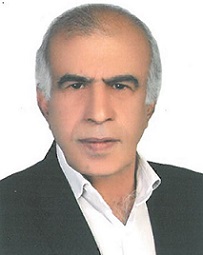C reative
Particle
Higgs
CPH Theory is based on Generalized light velocity from energy into mass.
CPH Theory in Journals
|
Griffin's final week as NASA chief?
|
|
WASHINGTON -- NASA Administrator Michael Griffin left open the possibility that he would remain as the space agency’s chief once Barack Obama becomes president, but said this morning that he was pessimistic about his chances to serve past inauguration day. “If he determines I’m his person, that’s just fine. But it’s not something I expect,” said Griffin, speaking to reporters during a breakfast roundtable. Instead, Griffin anticipated that he would begin “looking for another job” when Obama moves into the White House next week. Still, Obama’s transition team publicly has not ruled out the possibility of keeping Griffin and supporters of the veteran engineer have lobbied to keep him at the helm. Several names, however, have emerged as possible replacements, including former astronaut Charles Bolden and Earth scientist Charles Kennel. Hurting Griffin’s chances is a recent flap over his cooperation with the Obama transition team, including a public spat with Lori Garver, the leader of Obama’s NASA team. Griffin acknowledged that he had spoken several times with the transition team, but would not go into detail about those conversations. If Obama chooses someone else as NASA chief, he said that Obama should pick someone who “loves NASA as much as I do” but warned that the U.S. lead in aerospace –- established during the Apollo program -– is quickly eroding. “The advantage we purchased is going away,” he said. He said new administration must quickly make several decisions. By this summer, Obama must decide whether to add another space shuttle flight to carry a physics experiment to the International Space Station, a launch that could extend the shuttle era beyond its scheduled retirement in 2010. “If they want to fly the flight, they need to send money,” he said. By the same token, Griffin said Obama needs to determine this year whether he wants to accelerate the Constellation program, a new system of rockets and capsules meant to replace the shuttle. It would take about $4 billion to speed up a first launch from 2015 to 2014, he said. He also said that future budget concerns would force Obama to quickly decide whether he wants to continue supporting the space station beyond 2015. Right now, NASA cannot do anything to preclude continued operations, but more money is needed to extend the station's life. Money problems have long plagued NASA. Agency officials repeatedly insist they need more federal dollars to complete missions that have never been done before. At the same time, the agency often breaks the bank and misses deadlines with its roughly $17 billion budget. Griffin warned this morning, however, that if Congress funds NASA in 2009 at the same level that it did in 2008, then some NASA contractors would lose their jobs. “There will be layoffs, unequivocally,” he said. Congress still is negotiating much of the government's 2009 budget.
He would not expand on how many
jobs could be lost, or at which NASA centers. Source: http://blogs.orlandosentinel.com/news_space_thewritestuff/2009/01/griffins-final.html
1 2 3 4 5 6 7 8 9 10 Newest articles
|
|
Sub quantum space and interactions from photon to fermions and bosons |
Interesting articles
Since 1962 I doubted on Newton's laws. I did not accept the infinitive speed and I found un-vivid the laws of gravity and time.
I learned the Einstein's Relativity, thus I found some answers for my questions. But, I had another doubt of Infinitive Mass-Energy. And I wanted to know why light has stable speed?
